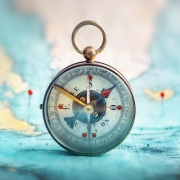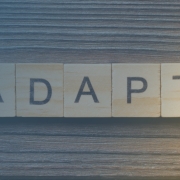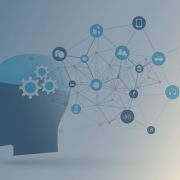No-One Understands How Systems Work.
You may have been listening to economists debating and arguing about the state of the economy and the future of inflation. Are we in a recession or not? What will the economy look like next year? What causes inflation? Will the rate of inflation increase or decrease? What can be done to alter the future direction of change?
There is no shortage of opinions, but a total lack of certainty, of confidence, or even of sound theory.
You probably find the same phenomenon when engaged in discussions about business – about how firms can do a better job of creating customer value, to grow and succeed. How can they achieve a rise in stock price? What are the most critical constraints? What’s the best process for driving innovation? What’s the best way to manage and incentivize employees and to build a strong culture? Those are the kinds of words and phrases business consultants and business school professors use – your own peer conversations are probably more to do with increasing sales, or lead generation or your P&L, or whether all the ingredients you need will be delivered.
But the challenge, in all these cases is the same. No-one knows anymore how these systems actually work. We can extend the list to climate as a system – some scientists claim they know how it works and can forecast the future, and another set views it as unpredictable and unmanageable.
We saw during the so-called pandemic that virologists and infectious disease experts and pandemic modelers got their predictions – and their policies – hopelessly wrong, and it cost millions of lives and billions if not trillions of lost economic production. We can see the might modeler Ph.D.’s at the Federal Reserve make the same hubristic mistakes with their models of money supply, inflation, employment, and economic growth. The only thing they’ve ever been is wrong.
In fact, there’s a whole new science of not understanding systems which is called complexity theory, which overlaps closely with chaos theory. It says the following: A system is a collection of elements, components, parts, pieces, or, generally, agents. In an economic system, the agents might include individuals, families, and firms. There are additional elements like processes, government and institutions, norms, traditions, and a whole lot more. These elements and agents interact with each other and with inputs and outputs. There is further interaction after feedback loops establish themselves – agents react to outcomes and results they didn’t expect or anticipate. There are so many variables – individual decisions and preferences, group behaviors, trends, technological changes, money supply changes, etc, etc – that the interaction is described as complex, which means beyond understanding, unpredictable, and non-linear (it goes off in directions and at speeds that no-one expects).
Complexity is science throwing up its hands and saying, we don’t understand these systems anymore, can’t predict them, can’t control them, and can’t manage them. We don’t even have any ideas on how to do so.
There are many fancy new words that come out of this science. One, for example, is emergence. Systems have emergent properties, meaning s*** happens that we can’t account for and couldn’t even imagine in advance. Emergence is a kind of magic.
Another new term is self-organization, which means that the system will evolve and develop as it likes without any input -or despite any input – from the scientists.
Don’t worry, there are lots of government grants being given for the study of complexity, lots of papers and journals, lots of conferences, and lots of sabbaticals being taken to contemplate future studies and grant applications. There is money in complexity.
What’s the alternative? Pragmatism.
When the system (of life, of business, of health, of the economy) is complex to the point of incomprehension and unpredictability, there is only one action: do something and see if it works or it doesn’t work. In business, it takes the form of what is called today A/B testing. Try two different actions (without any prediction or bias or even desire as to which outcome will result) and choose one that works, i.e. moves in the direction you feel is better. Then do another test and another and another until there’s a string of results. Expand the actions so long as they keep working. Start a small store and keep expanding it unit by unit until there’s a big store. Be prepared for things to change without notice. Go back to square one if they do.
There are fancy terms for this too. Economists call it entrepreneurship. Constantly trying and re-trying, combining and recombining, testing and re-testing. If a promising pattern is established, pursue it and reproduce it, but only so long as the pattern holds. Drop it as soon as it becomes erratic. Start another one. Creativity is the required skill set, and the whole point about creativity is unpredictability.
Creative entrepreneurship doesn’t try to study complexity. Entrepreneurs face it every day and they take action rather than studying it.






Leave a Reply
Want to join the discussion?Feel free to contribute!